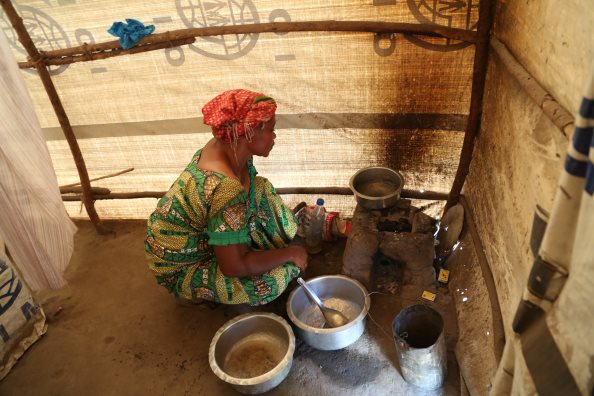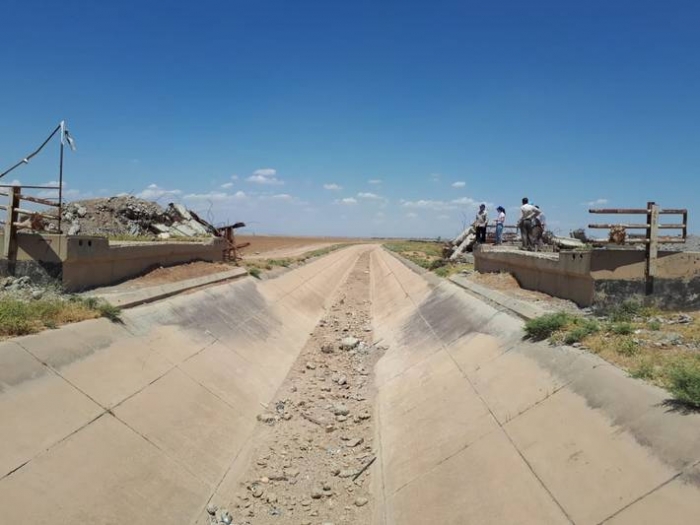COVID-19 Dealt Heavy Blows to Iraqi Labour Market, Enterprises in 2020: IOM, FAO, ITC Study
In early April, Iraq surpassed 900,000 COVID-19 cases.
Necessary efforts to contain the spread of the virus throughout 2020 led to a reduction in economic activity; compounded by pre-existing economic challenges, drops in oil prices and the public health COVID-19 crisis, it is estimated that Iraq’s economy contracted by 9.5 per cent in 2020.
To measure losses and investigate how small- and medium-sized enterprises (SMEs) in Iraq are coping with the economic impact of COVID-19, the International Organization for Migration (IOM), the Food and Agriculture Organization (FAO), and the International Trade Center (ITC) conducted a panel study in 2020 on 893 SMEs representing 16 sectors in 15 governorates in Iraq.
The study focused on the food and agriculture sector in order to determine variance in outcomes and effects on these firms when compared to non-agricultural businesses. The primary data used in this study was collected using ITC’s COVID-19 corporate survey.
The new report Panel Study: Impact of COVID-19 on Small- and Medium-Sized Enterprises in Iraq showcases the main findings from three rounds of data collection, covering the effect of border closures and lockdowns on revenue, production, and employment; accessibility of resources or ability to sell products; and mechanisms adopted to cope with the crisis.
Almost all firms in the study reported a decline in production or sales between February 2020, the pre-COVID-19 period, and the end of the year. Firms suffered large losses in revenue early on (an average decline of 67% by June).
Although revenue partially recovered between July and October, it did not reach pre-pandemic levels (firms reported a revenue drop on average of 23% between February and November). SMEs also reported incurring new debt over the year due to the pandemic, primarily through informal means such as borrowing from friends and family.
The labour market also suffered due to COVID-19. On average the number of employees in SMEs reduced by 27 per cent between February and June. By August, employment numbers began to recover but remained below pre-pandemic levels by the end of 2020, with the number of male and female employees, including full- and part-time, decreasing on average by seven per cent between February and November.
Furthermore, the reduction in employment temporarily widened the gender gap in the labour market. In February, there was 1 woman for every 15 men working in the surveyed SMEs. The gap reached 1 woman for every 19 men by August, but then decreased to 1 for 13 in November 2020.
Over the course of the study period, the mechanisms SMEs adopted to cope with the financial difficulties of the pandemic changed. Initially, SMEs laid off employees. Later, requesting leniency in repaying financial responsibilities and increasing marketing efforts emerged as the dominant strategies. In June, more than half of SMEs’ reported being at risk of shutting down permanently (65%). By December, those reporting this risk reduced to less than a third (31%).
The same 893 SMEs were surveyed three times in 2020: 22 June to 7 July, 9 to 18 September, and 29 November to 15 December.
The study was funded by the U.S. Department of State’s Bureau of Population, Refugees, and Migration (PRM) and the European Union.
(Source: UN)
The post COVID-19 hits Iraqi Labour Market, Enterprises first appeared on Iraq Business News.



